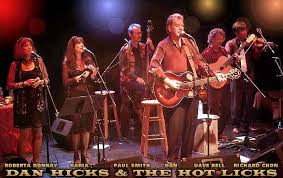Black Keys / Wellmont Theatre/ February 2009
On an unseasonably warm Sunday night in February, two capable Buckeye State outfits conquered North Jersey’s newest high-profile concert venue. Gaining a strong foothold aboveground, Akron’s Black Keys earned their respectable audience the ‘hard way,’ touring frequently to promote four reliable deconstructed ‘white blues’ albums. Meanwhile, opener Doug Gillard, learned to gain minor acceptance the ‘harder way,’ remaining, unjustly, an indie rock footnote despite acute songwriting skills and dynamic guitar work.
Last year, famed trip-hop producer (and Gnarls Barkley founder) Danger Mouse convinced the Black Keys to mold tracks for a prospective Ike Turner comeback album. However, when the troubled 72-year-old Rhythm & Blues trailblazer suddenly passed away, the dynamic duo decided to complete the project with Danger Mouse anyhow, utilizing a proper studio for the first time. The phenomenal result, Attack & Release, places the Black Keys roughhewn garage assault in various keyboard and synthesizer-enhanced settings without hindering Dan Auerbach’s nastily gnarly riffs.
Nevertheless, live at Montclair’s refurbished Wellmont Theatre, Auerbach and drumming partner, Patrick Carney, delivered their newest batch of tunes with all the scruffy minimalist energy they righteously deserve. Auerbach came onstage first, pushing up the amplified feedback on his monitor to feverish levels prior to strapping on a six-string. Carney joined in a flash, readying himself stage right at a slightly elevated percussion setup. Attack & Release highlight, “Strange Times,” sans moody orchestral textures, pierced skulls with its fuzzy psychedelic barrage, initiating a non-stop onslaught of greasy swamp blues and raw-boned refried boogie romps.
The audience closest to the stage seemed enamored with the sparks flying off Auerbach’s fleet fingers, as he let loose braying horse-squealed distortion and wiry Jon Spencer-ripped sonic sprees hardened by rough-shard baritone-wailed screeds. They revisited rudimentary ’02 debut, The Big Come Up, for knotty deluge, “The Breaks,” an early original recorded, naturally, in a musty cellar. Next came a slithering down-tempo mantra, a Mississippi Delta blues redux, a blazing distortion-packed shakedown, and a rampaging metal-prone scrambler.
As expected, the Black Keys (like renowned Detroit twosome, the White Stripes) created a gigantic sound for just one guitarist and one drummer. Auerbach’s tasty licks, on occasion, conjured legendary axe-burner Jimi Hendrix (and cunning disciple Robin Trower), but never directly. Making a helluva racket, he’s able to gather humble blue-collar black music enthusiasts as well as tattooed biker chicks with distended gutbucket junkets and corruptive chordal jams. Raging climactic blues-rock eruption, “Your Touch” (off primal ’06 concoction, Magic Potion), got the crowds’ collective mojo working while a sentimental lullaby sung in a nasal twang proved to be the only somber moment of the evening. Like a robust, full-bodied beer, they’ve got gusto.
Beforehand, Doug Gillard, a seasoned underground journeyman, delivered a tight set of pleasingly melodic rockers, unloading catchy hooks in all the right places. Admirable stints in ‘80s new wavers Death Of Samantha, ‘90s indie lynchpins Guided By Voices, and the more contemporary Cobra Verde have earned the Ohio native mod power pop eminence. Though he has ably fulfilled the role of prodigal sideman in the past, the diminutive wizard really benefits from the crack bands he has recently assembled. Propelled by dual guitar imbroglio and a solid rhythmic core, the transplanted New Yorker lead a hot combo of experienced musical denizens. Several tuneful nuggets festoon his latest solo endeavor, Call From Restricted. For an encore, he reached back to vital arena rock sure-shot, “I Am A Tree,” a propulsive anthem first recorded when Gillard fronted unheralded band, Gem.
